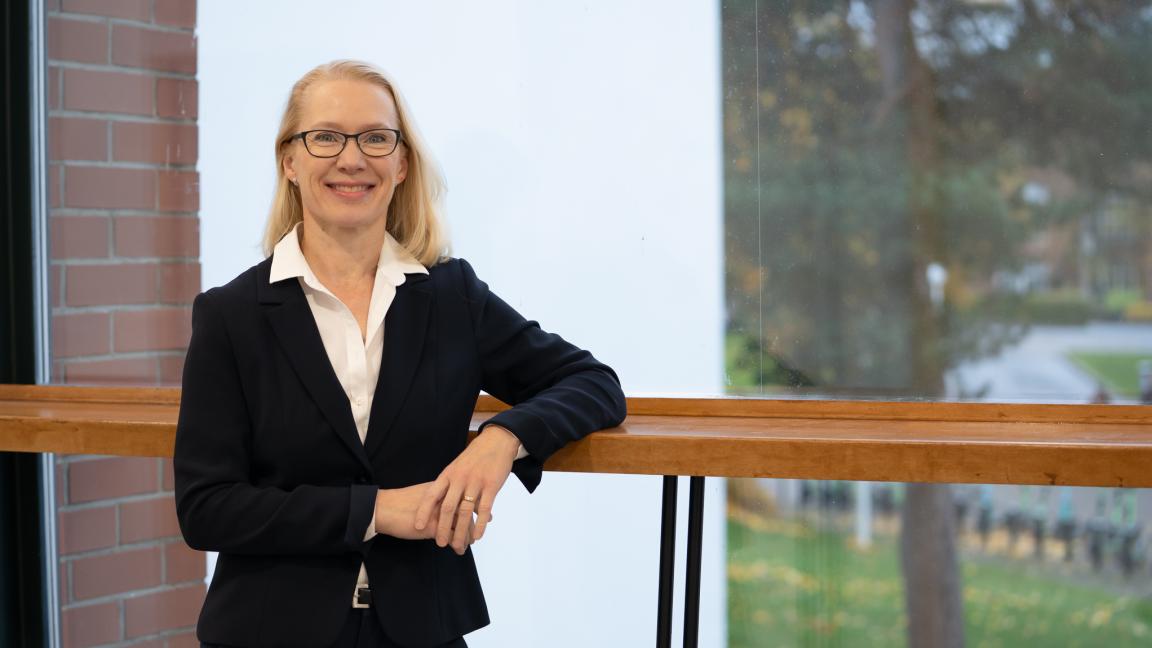The health and social services reform in Finland separated education from health and social services into different organisations. This has increased the pressure for network-based cooperation and seamless service chains. According to Mattila’s dissertation in public management, municipal directors of education must now be able to engage various actors around shared goals and foster trust between them, in order to bring stakeholders out of their own silos.
However, financial constraints make collaboration challenging. There is a risk that both municipalities and wellbeing services counties will optimise only their own operations at the expense of the bigger picture.
– This requires a new attitude from both organisations and leaders. They must dare to compromise on their own objectives in order to achieve something greater together. Leaders must be able to let go of the individualistic leadership role and the pursuit of their organisation’s self-interest, says Mattila.
If cooperation fails, the client suffers.
– The client quickly notices when cooperation fails. They may have to explain their needs over and over to different people or take responsibility themselves for ensuring that information is passed from one actor to another. This is inefficient and frustrating, Mattila says.
Trust and dialogue are the new form of leadership
A key finding of Mattila's research is that traditional, hierarchical leadership no longer works when solving today’s complex problems. For example, physical inactivity is the sum of many factors, and tackling it requires the contribution of different organisations and professionals. Cooperation requires mutual trust, commitment, and shared leadership, where responsibility for results is collective and leadership within the network can shift over time.
Smooth service delivery also requires continuous dialogue and clear goals. When successful, this new kind of cooperation appears to the citizen as a seamless service.
– The goal is that the client does not even notice they are dealing with multiple organisations. The service entity is coherent, information flows, and the person feels genuinely helped. Cooperation is not a naive solution to everything, but without it, we may not be doing the right things, and in the long run, costs will rise, Mattila concludes.
Dissertation
Mattila, Eija (2025) Organisaatioiden välinen yhteistyö kuntien sivistyspalveluissa: verkostomaisen yhteistyön ja palveluintegraation johtaminen kuntien sivistyspalveluiden yhdyspinnoilla. Acta Wasaensia 568. Doctoral dissertation. University of Vaasa.
Public defence
The public examination of M.Sc., MAEd Eija Mattila’s doctoral dissertation ”Organisaatioiden välinen yhteistyö kuntien sivistyspalveluissa: verkostomaisen yhteistyön ja palveluintegraation johtaminen kuntien sivistyspalveluiden yhdyspinnoilla” will be held on Friday 7 November 2025 at 12 at the University of Vaasa, auditorium Nissi.
It is possible to participate in the defence also online:
https://uwasa.zoom.us/j/68900320902?pwd=mCcEW7HsuSsneFz8XLK7XU5nsuTR18.1
Password: 607014
D.Sc. (Admin.) Jenni Airaksinen (The Foundation for Municipal Development KAKS) will act as opponent and Professor Tomi Kallio as custos.
The defence will be held in Finnish.
Further information
Eija Mattila graduated from the University of Turku with a Master of Science in Economics and Business Administration in 2018 and a Master of Arts in Education in 1992. She works as the Director of Education and Culture for the Town of Huittinen.
